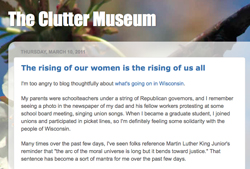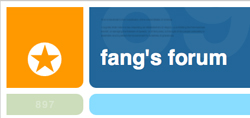For more reasons than I could adequately explain here, I’ve been thinking even more often than usual about the value of a liberal arts education in our understanding of the world and the ways we ought to engage with it. As Jeremy Hunsinger has written,
Coming to know, as the primary process of knowledge, is a mobile, communal and material effort, and it engages people, places, and things, through our memories and practices tied to the histories of knowledges, its fluxes, and its futures.
The liberal arts are about engagement with ideas, places, and people. To be frank, in my experience, people educated in the liberal arts tend to be more interesting than those with a more vocational education, and they take delight in details and phenomena that others might not even notice.
What does a liberal arts understanding look like when deployed in our everyday lives? Here are a few examples from my experience.
-
Understanding that landscape architecture transcends Sunset magazine. It’s being able to look at a public space and ascertain for whom it was designed and why, how it might have changed over time, and whose values it represents. . .and both taking pleasure in this analysis and knowing such interpretation is important for all kinds of reasons.
-
Looking at a chart published by a major news organization and redesigning it so it conveys information more clearly and to less partisan ends.
- Pawing through the medical artifact collections at the Idaho State Historical Museum, making connections between practices a century ago and those today–and realizing that in many cases, practices persist but values shift, while in other cases values persist but the practices around them have changed. And then formulating arguments as to why those shifts and continuities matter to Idahoans’ beliefs about health and wellness, then and now.
-
After seeing someone on Facebook mention being able to hold two opposing thoughts in her mind at the same time, musing on Keats and negative capability and wondering how the concept might be useful in understanding Idaho politics.
-
Seeing an allusion to the “Draw a Scientist” activity and understanding the confluence of historical events and cultural beliefs and values that has led to our narrow understanding of who qualifies as a scientist—and knowing where to find and how to interpret the research being done on the best ways to combat this stereotype.
-
When besieged by an enthusiastic evangelical Christian who kept stuffing tiny comic-panel tracts into my hand, I used my understanding of the culture and geography from which she emerged to steer her away from proselytizing to me and toward mutual understanding. Whenever I run into her now, she seems genuinely happy to see me and doesn’t try to save my soul in any explicit way.
-
Watching pretty much any segment of The Daily Show with Jon Stewart or The Colbert Report, and being at once dismayed and delighted by what I see and hear in its coverage of the countless hypocrisies in U.S. political life and media representations.
-
Watching, as I am now from my perch on the fourth floor of the university library, a Canada goose floating on the moderately swift current of a river that flows between the university and a large public park, and mentally mapping the confluence of events that made the moment possible, the mind piecing together a quilt whose pieces include but are not limited to the Army Corps of Engineers, water rights legislation in the western U.S., climate change, treaties governing migratory wildlife, the pastoral aesthetic, and municipal recreation priorities. . . but also having empathy for the goose, for it must be a fun ride.
I’ve found that people with a quality liberal arts education tend to be lifelong learners, participating in both formal and informal learning opportunities and indulging in a good deal of autodidactism.
In short, viewing the world through a liberal arts lens is delightful, and I’m so grateful for my time at Grinnell College, which informed my years afterward studying literature, writing, and culture.
Of course, one need not attend an elite liberal arts college to acquire one, but it’s clear it’s getting harder to pursue the liberal arts at regional public universities.
What about you? If you have a broad-based liberal arts education in the humanities, arts, and sciences, how do you find it influencing the way you view or experience the world?

